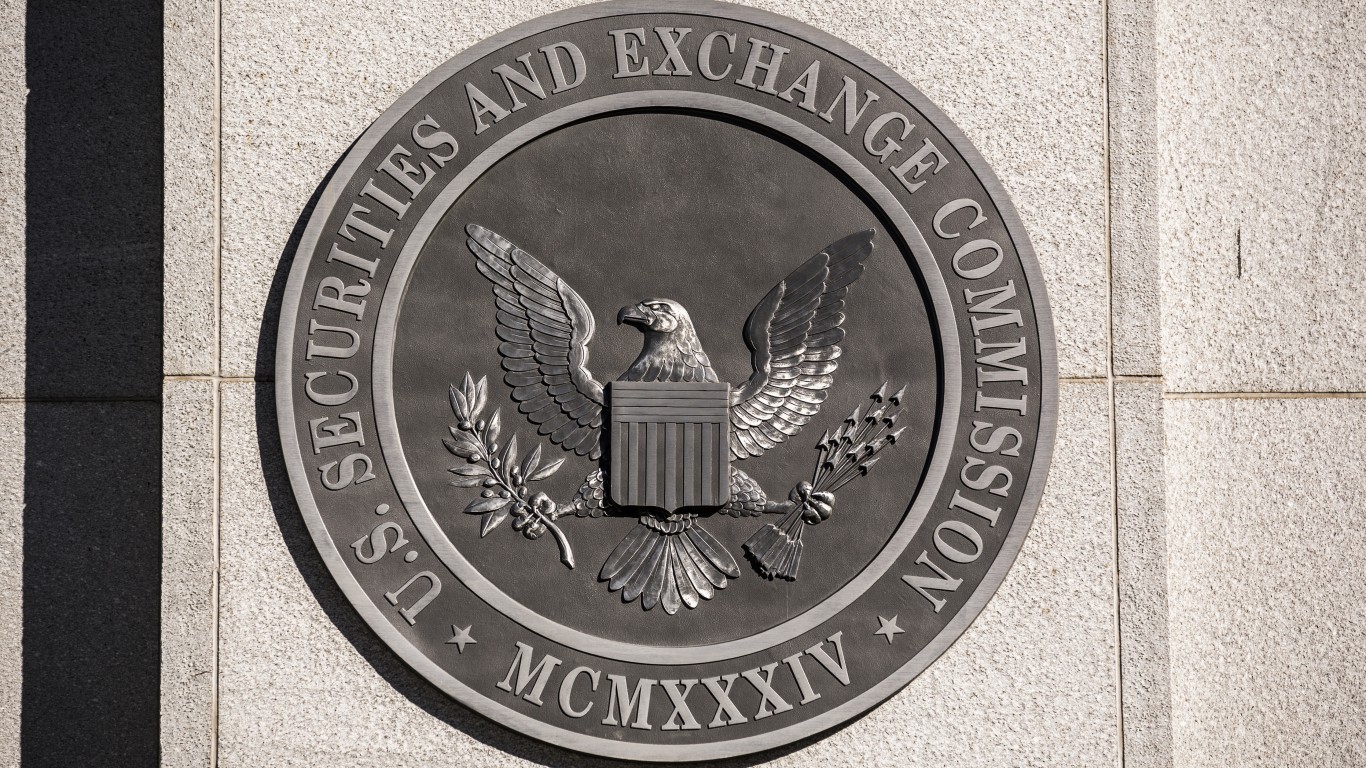

The U.S. Securities and Exchange Commission has sued Terraform Labs, the developer of now-collapsed Terra Luna and TerraUSD stablecoin, and the company’s CEO, Do Kwon, for allegedly orchestrating a multibillion-dollar cryptocurrency fraud. The lawsuit comes nearly nine months after the high-profile collapse of the Terra ecosystem.
SEC Claims Terra Was Not Decentralized, Not Finance
On Wednesday, the SEC filed a complaint against Singapore-based Terraform Labs and its CEO Kwon for “orchestrating a multi-billion dollar crypto asset securities fraud involving an algorithmic stablecoin and other crypto asset securities.”
The commission claimed that Terraform and Kwon raised billions of dollars from investors during the period between 2018 to May 2022 by selling “crypto asset securities” in the form of synthetic assets or “mAssets,” algorithmic stablecoin Terra USD (UST), and its sister cryptocurrency LUNA.
The complaint said Terraform misled investors by marketing UST as a “yield-bearing” stablecoin, which used to pay as much as 20% interest through the Anchor Protocol. The suit also alleged that Terraform and Kwon misled investors about the stability of UST. SEC Chair Gary Gensler said in a comment:
“We allege that Terraform and Do Kwon failed to provide the public with full, fair, and truthful disclosure as required for a host of crypto asset securities, most notably for LUNA and Terra USD. We also allege that they committed fraud by repeating false and misleading statements to build trust before causing devastating losses for investors.”
The commission’s Director of Enforcement, Gurbir Grewal, claimed that the Terra ecosystem was neither decentralized, nor finance. “It was simply a fraud propped up by a so-called algorithmic “stablecoin” – the price of which was controlled by the defendants, not any code.”
Do Kwon and TFL Siphoned 10,000 BTC from Terra Ecosystem
The SEC also alleged that Do Kwon and Terraform had siphoned approximately 10,000 BTC out of the Terra ecosystem, stored it in an unregistered cold wallet, and cashed out some of it using a Swiss bank; the agency has not named the Swiss financial institution involved in the scheme.
According to the SEC complaint, Do Kwon and the firm had been transferring assets from the cold wallet to a bank in Switzerland and converting the tokens into cash.
“Between June 2022 and the date of this complaint, over $100 million in fiat currency has been withdrawn from that Swiss bank.”
How did Terra’s Algorithmic Stablecoin fail?
UST was a decentralized stablecoin, meaning there was no centralized entity holding its reserve assets. Instead, the stablecoin used another cryptocurrency, LUNA, to keep its dollar peg through an algorithmic incentive mechanism.
This was made possible through arbitrage traders, who could use the inefficiencies in the ratio between LUNA and UST to profit off the difference while simultaneously helping UST hold its peg. However, the stablecoin lost its dollar peg after a wave of sell-off and uncertainty hit the crypto market in May last year.
At the time, Terraform Labs managed to partially repair the peg by purchasing $2 billion UST using its reserves. However, the continued sell-off drained those funds, hyperinflated UST’s sister token LUNA, and crashed the price of both LUNA and UST. The collapse is estimated to have cost investors more than $40 billion.
South Korean Officials on the Hunt for Kwon
Following the unprecedented collapse of UST, South Korean regulators launched an investigation into Terraform Labs and several local crypto exchanges. The prosecutors also barred Kwon and Terraform employees from leaving South Korea while the ongoing investigation, but Kwon had already left the country.
In July last year, South Korean officials raided some digital asset exchanges in the country, including Upbit, as a part of the Terra investigation. A team of investigators raided these exchanges’ properties and seized transaction records and similar information.
Kwon’s South Korean passport has been revoked, so he cannot travel from his current location. A court in South Korea has issued arrest warrants for the disgraced crypto boss and another five company executives. Similarly, Interpol has issued a Red Notice, calling upon international police officers to arrest Kwon.
In December, the South Korean prosecutors claimed Do Kwon was “in hiding” in Serbia, asking the European nation’s police force to hand him over to them. And more recently, a team of South Korean officials traveled to Serbia to locate Kwon.
Nevertheless, after the collapse of Terra, the community accepted Kwon’s proposal to create a new blockchain called Terra, with the existing chain being renamed Terra Classic. The new blockchain did not integrate the UST algorithmic stablecoin, and new LUNA tokens were airdropped to Luna Classic (LUNC) and remaining UST holders.
The new LUNA token has lost more than 90% of its value since its launch nine months ago. The coin is currently trading at $1.88, down from its all-time high of $18.87 in May last year.
This article originally appeared on The Tokenist
Sponsored: Want to Retire Early? Here’s a Great First Step
Want retirement to come a few years earlier than you’d planned? Or are you ready to retire now, but want an extra set of eyes on your finances?
Now you can speak with up to 3 financial experts in your area for FREE. By simply clicking here you can begin to match with financial professionals who can help you build your plan to retire early. And the best part? The first conversation with them is free.
Click here to match with up to 3 financial pros who would be excited to help you make financial decisions.
Thank you for reading! Have some feedback for us?
Contact the 24/7 Wall St. editorial team.



